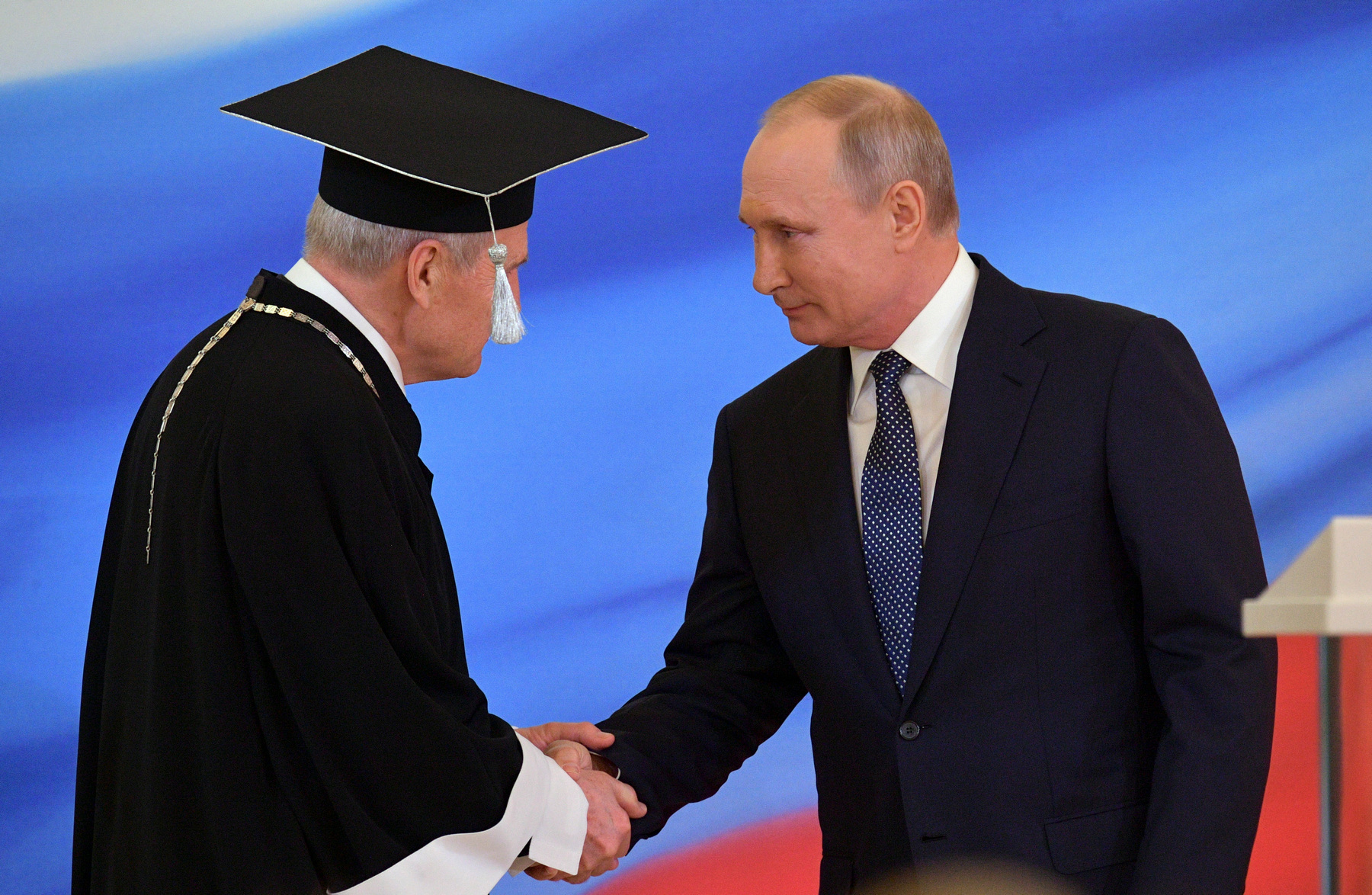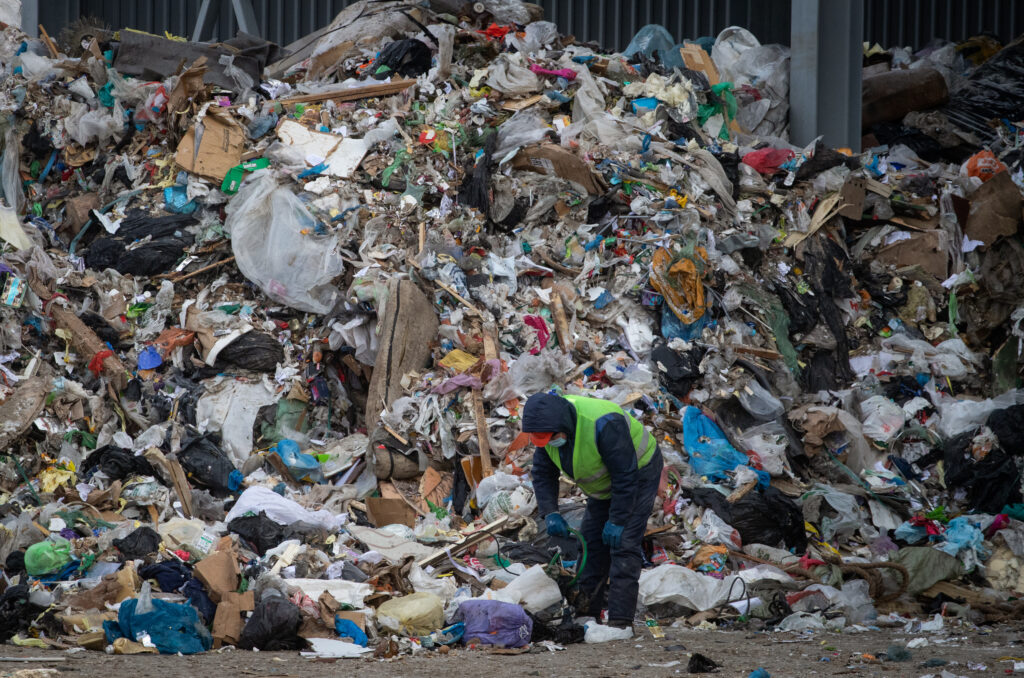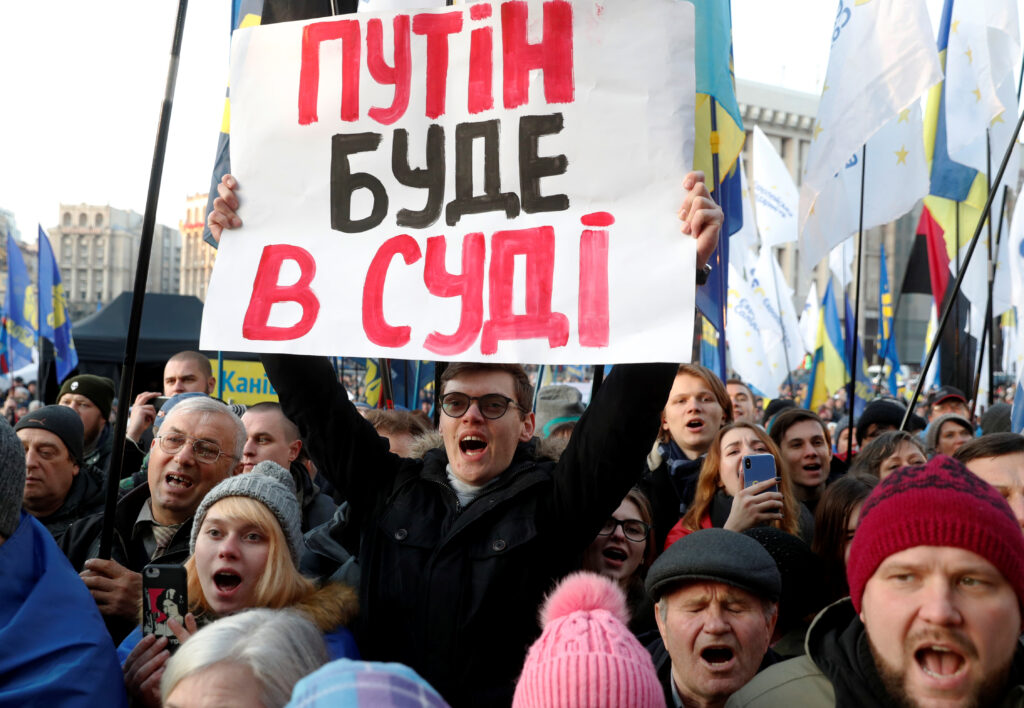Putin’s ‘special operation’ to amend the constitution in circumvention of the legitimate procedure came as a surprise to many. The degree of outright cynicism and disregard for the norms of law, even those adopted by the government itself, was striking. Only a few experts had predicted such an outcome.
Interestingly, the general philosophy of the Russian constitutional reform was formulated and published by Valery Zorkin, chairman of the Constitutional Court (CC) and chief philosopher of the incumbent regime, back in May 2019. In his concept, Zorkin openly calls for abandoning the principle of the rule of law. To substantiate his position, he uses the rhetoric of threats typical of the Putin regime. According to Zorkin, democracy and law in their contemporary sense have long been in crisis, preventing Russia from saving itself from the challenges posed by the outside world.
Zorkin says the only way to cope with this crisis is to ‘shatter legal dogmas’ and ‘overcome stereotypes entrenched in law’. This will help us move from postmodern law (i.e. contemporary law) to Zorkin’s metamodern understanding of the law.
The negative characteristics of contemporary law include ‘double standards’ as well as ‘the denial of hierarchy, irony and sarcasm’. Zorkin pays special attention to freedom of speech and expression, saying it is a great disadvantage that ‘all opinions have the right to exist’ (!) and ‘can be equally right or wrong’ (!). Zorkin interprets this as an absence ‘of basic legal notions — truth, objectivity and justice’.
In light of this concept, there must be a single opinion which is true and objective. And this ‘right’ opinion, which is obligatory for all, should be set by the state.
In fact, Zorkin conceptualises current Russian politics. In recent years, many laws adopted by the Duma aim at setting limits on what a Russian citizen can (or cannot) think or speak. These include laws that ban ‘propaganda of non-traditional relations’, insulting the feelings of believers, opinions about the state and government bodies, fake news, insulting public morals and many others. The jewel in the crown in this fight for the purity of Russians’ thoughts is the constitutional amendment on historical truth and protection of ancestors’ memory.
Zorkin also criticises the main classical approaches to law, namely positivism and natural law (ius naturale). Positivism, whose main principle is strict observance of the norms of law, is too strict. Natural law (that is, recognition of natural rights of a person, who enjoys them from birth and cannot be deprived of them by anyone, even by the state) clearly leads to ‘unlimited tolerance’, equated with chaos.
The metamodern approach to law advocated by Zorkin will make it possible ‘to accumulate the potential of various types of interpretations of law’. Simply put, according to this approach, the law is a political toolkit for the authorities, who can take things out here or there.
To be more specific, he suggests we should abandon the principles of the rule of law and the universal nature of human rights. Instead, we should focus on ‘socio-cultural value-normative fundamentals’, ‘reliance on national identity’ and ‘history’. Together these will determine the content of the laws. The principles outlined by Zorkin are precisely reflected in the constitutional amendments. There is a lot of history: the Russian Federation is united by ‘a millennium of history’, recognises the ‘historically established state unity’ and ‘ensures protection of historical truth’ (Art. 67(1), para. 2, 3). The amendments also contain a lot of ‘socio-cultural fundamentals’. Three paragraphs are devoted to the protection of culture and cultural identity (Art. 69 and 70).
A question arises: why have these clauses been included in the text of the Constitution of the Russian Federation, a legal document meant to regulate social relations rather than moral and ethical norms?
Zorkin’s article answers this question, too. According to him, the main function of the law is not regulation of relations at all. Rather, it is ‘a presentiment of a common misfortune and the thought of universal salvation’, an idea borrowed from philosopher Arsenii Gulyga (1921−1996).
From the point of view of this concept of law, the most recent constitutional amendments and the idea of resetting Putin’s presidential term to zero look quite logical. There is no rule of law, no principle of constitutionality, no binding laws, since the main thing is the ‘thought of universal salvation’, historical truth as well as unique socio-cultural values. If salvation requires this ‘reset’, it is a legal measure. And all the rest, e.g. observance of the norms of existing laws, legal principles, citizens’ rights, is the ‘excessive strictness of positivism’.
Zorkin’s theory of law as a tool of universal salvation was enriched in April 2020 when he emphasised that functions of human rights protection should be handed over to the state for the sake of society’s further prosperity and security. Citizens should simply trust the authorities.
By the way, there is also a constitutional amendment on trust between society and the state, Article 75 (1).
But what Zorkin mysteriously calls ‘metamodernism’ has long been described and defined in literature as the law of a police state. In a police state, there is scant difference between laws and orders of the executive branch (the government, Prosecutor’s Office, police); they are equally important. Accordingly, in reality, power is not limited by anyone or anything, since any decision by the authorities becomes the law.
This is in opposition to a state based on the rule of law, where firstly, laws and administrative decisions have different legal weight and consequences, and secondly, the authorities’ actions are recognised as legitimate only if they are carried out within the limits of established legal restrictions.
Thus, in a police state the key principle governing the authorities’ actions is not law or legislation but ‘political expediency’, arbitrarily determined by top officials. Moreover, advocates of the theory of a police state have also said that all these control measures are needed only for ‘ensuring and maintaining the happiness and wellbeing of the people’ (Christian Wolff, 1679−1754). Yet, they interpret ‘the people’s happiness’ quite arbitrarily.
So, when the head of state decided to reset his presidential terms to zero as soon as possible, the incumbent regime did not bother to observe formalities or invent something more or less in line with constitutional principles, or, at worst, introduce changes to electoral legislation. They quickly adopted a law that had no constitutional grounds and even violated their own law as regards terms and procedures. However, according to the logic of a police state, this was not a violation of the law. As Chairwoman of the Central Election Commission Ella Pamfilova put it, ‘we took this path in the interests of our citizens’.
The voting itself was described by Pamfilova as the president’s good will: ‘He could have done nothing at all, everything has already been adopted’.
After all, everything is in line with Zorkin’s appeals to ‘shatter legal dogmas’ and ‘overcome legal stereotypes’. Apparently the latter include all principles of electoral law, including secrecy of the ballot and freedom to vote.
Such blatant disregard for the norms of legislation and legal principles by the top authorities is fraught with consequence for society. Zorkin asserts that repudiation of the legal order and an attempt to replace it with hazy ethics of truth and justice can save Russia from ‘common misfortune’. Russia already went through this in the 19th century.
Many Russian philosophers often quoted by Putin wrote that it was ‘the law which was a necessary form of spiritual existence of a human being’ (Ivan Ilyin) and was the very ‘objective ethics’ that provided conditions for the inner improvement of humans and society (Vladimir Solovyov).
The disregard for legislation and law by the authorities leads to a situation where the model of ‘the priority of arbitrariness of some individuals’, presented as a manifestation of real objectivity, becomes the main behavioural pattern in society. Given such social relations, people no longer trust each other, not to mention trusting the authorities. As history shows, a government unrestricted by law indulges in regulating every piece, suppressing any spontaneous initiative and normal civic life. One can hardly expect healthy development of a society under such conditions.









